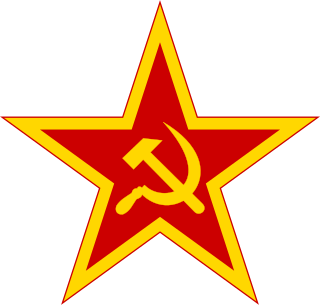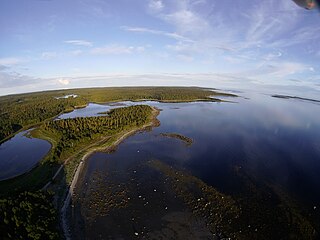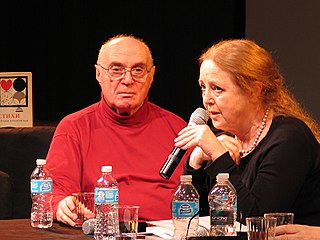This article includes a list of references, related reading or external links, but its sources remain unclear because it lacks inline citations .(April 2017) (Learn how and when to remove this template message) |
Kolyma Tales (Russian : Колымские рассказы, Kolymskiye rasskazy) is the name given to six collections of short stories by Russian author Varlam Shalamov, about labour camp life in the Soviet Union. He began working on this book in 1954 and continued until 1973.

Russian is an East Slavic language, which is official in the Russian Federation, Belarus, Kazakhstan and Kyrgyzstan, as well as being widely used throughout Eastern Europe, the Baltic states, the Caucasus and Central Asia. It was the de facto language of the Soviet Union until its dissolution on 25 December 1991. Although, nowadays, nearly three decades after the breakup of the Soviet Union, Russian is used in official capacity or in public life in all the post-Soviet nation-states, as well as in Israel and Mongolia, the rise of state-specific varieties of this language tends to be strongly denied in Russia, in line with the Russian World ideology.

Varlam Tikhonovich Shalamov, baptized as Varlaam, was a Russian writer, journalist, poet and Gulag survivor. He spent much of the period from 1937 to 1951 imprisoned in forced-labor camps in the arctic region of Kolyma, due in part to his having supported Leon Trotsky and praised the anti-Soviet writer Ivan Bunin. In 1946, near death, he became a medical assistant while still a prisoner. He remained in that role for the duration of his sentence, then for another two years after being released, until 1953. From 1954 to 1978, he wrote a set of short stories about his experiences in the labor camps, which were collected and published in six volumes, collectively known as The Kolyma Tales. These books were initially published in the West, in English translation, starting in the 1960s; they were eventually published in the original Russian, but only became officially available in the Soviet Union in 1987, in the post-glasnost era. The Kolyma Tales are considered Shalamov's masterpiece, and "the definitive chronicle" of life in the labor camps.

The Soviet Union, officially the Union of Soviet Socialist Republics (USSR), was a socialist state in Eurasia that existed from 30 December 1922 to 26 December 1991. Nominally a union of multiple national Soviet republics, its government and economy were highly centralized. The country was a one-party state, governed by the Communist Party with Moscow as its capital in its largest republic, the Russian Soviet Federative Socialist Republic. Other major urban centres were Leningrad, Kiev, Minsk, Alma-Ata, and Novosibirsk.













